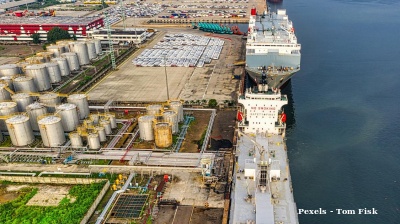In a significant escalation of cross-strait tensions, the Chinese Finance Ministry announced on September 18 that it will suspend tariff exemptions for 34 agricultural and aquatic products imported from Taiwan, effective September 25. This decision has drawn sharp criticism from Taiwanese officials, who are urging a swift return to international trade norms in accordance with World Trade Organisation (WTO) guidelines, as reported by Radio Taiwan International (RTI).
This latest move marks the second instance this year in which China has unilaterally revoked tariff concessions, having previously suspended exemptions on 134 items under the Cross-Strait Economic Cooperation Framework Agreement (ECFA) in June. Mainland Affairs Council (MAC) Chairman Chiu Chui-cheng condemned the action as economic coercion, asserting that it undermines the stability of cross-strait relations. He highlighted that such tariff suspensions are in violation of WTO principles, emphasising the need for trade disputes to be resolved through established international mechanisms.
Agriculture Minister Chen Junne-jih stated that the total trade value of the 34 affected items exported to China in 2024 amounts to approximately $7.36mn. With the suspension of tariff exemptions, Taiwan will face an additional $1.08mn in tariffs. Chen reassured that the ministry is taking measures to manage these potential losses while continuing to advocate for Taiwanese agricultural products in high-value markets beyond China.
The political ramifications of this decision have not gone unnoticed. DPP Legislative Caucus Secretary-General Rosalia Wu accused China of leveraging business to exert political pressure, thereby disregarding established international trade regulations. In contrast, KMT legislator Hung Mong-kai called on the Taiwanese government to urgently identify new export channels for local farmers, urging swift action to mitigate the impact of these punitive tariffs.
The suspension of tariffs is poised to further strain economic ties between Taiwan and China, with the latter leveraging trade as a means of political influence. Taiwanese officials are now facing increased pressure to bolster agricultural exports to alternative markets, particularly as tensions in the region continue to escalate.
As both sides navigate this complex landscape, the future of cross-strait trade hangs in the balance, with the call for adherence to WTO norms echoing louder amidst growing economic hostilities.
News

US kills three in second strike on alleged Venezuelan drug vessel
The United States has conducted a second military strike against what it claims was a drug-trafficking vessel from Venezuela, killing three people and further straining already fraught relations between Washington and Caracas.

Ukraine hits multiple Russian oil refineries, Trump calls for more EU oil sanctions
Ukraine is expanding its campaign of trying to cut the Kremlin off from its oil export income with a campaign of targeting Russia’s oil refining and pipeline assets, using its new long-range drones and missiles.

Serbian students allege police deployed toxic gas at protest
Students at the University of Novi Sad said that independent laboratory tests showed police had used a banned form of tear gas against demonstrators during clashes earlier this month.

China launches Hongqi H5 sedan in Middle Eastern markets
Luxury Chinese off-brand Rolls-Royce launches in the Iranian auto market at $42,000 massively undercutting European and Japanese sedans in the same market.




